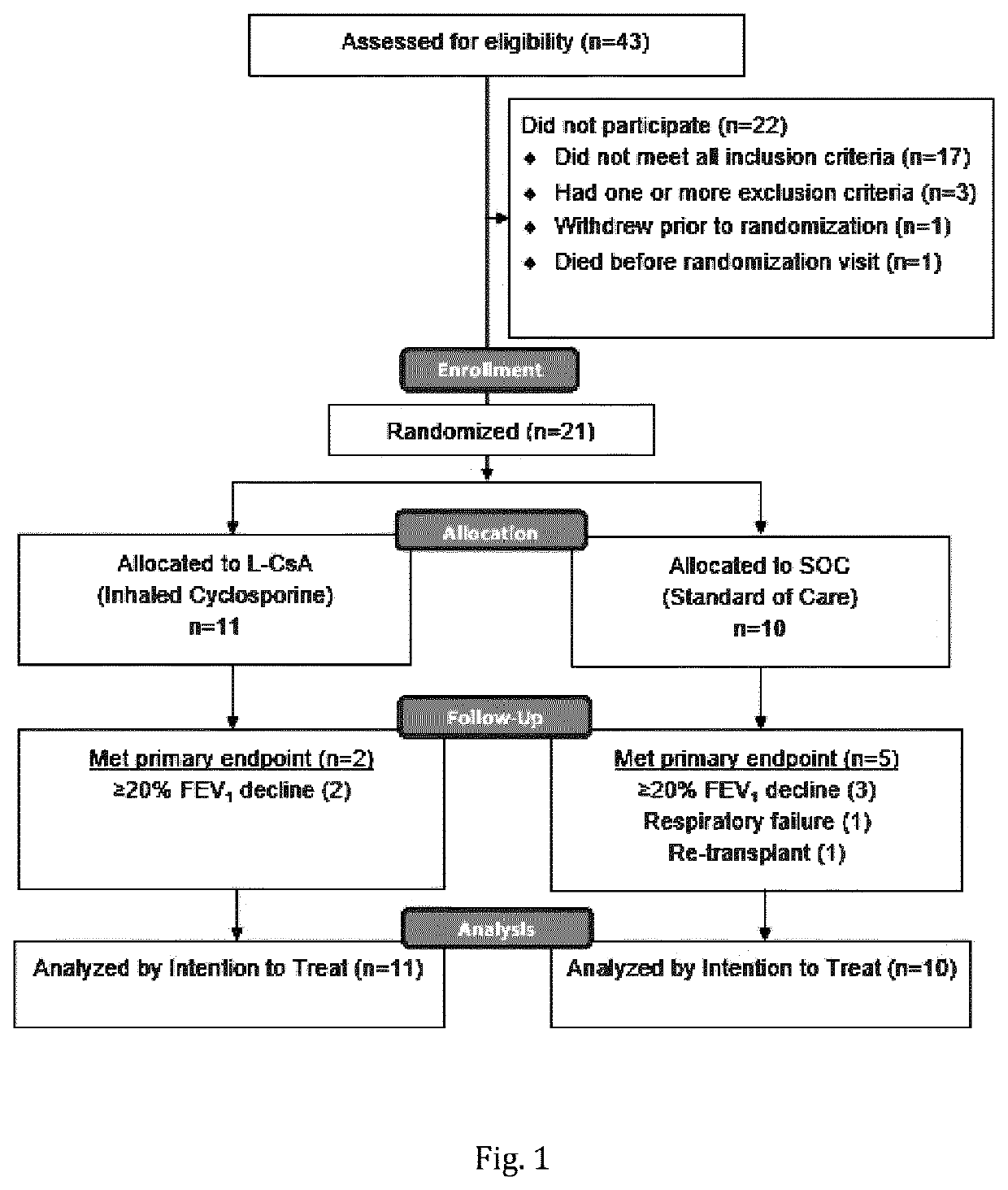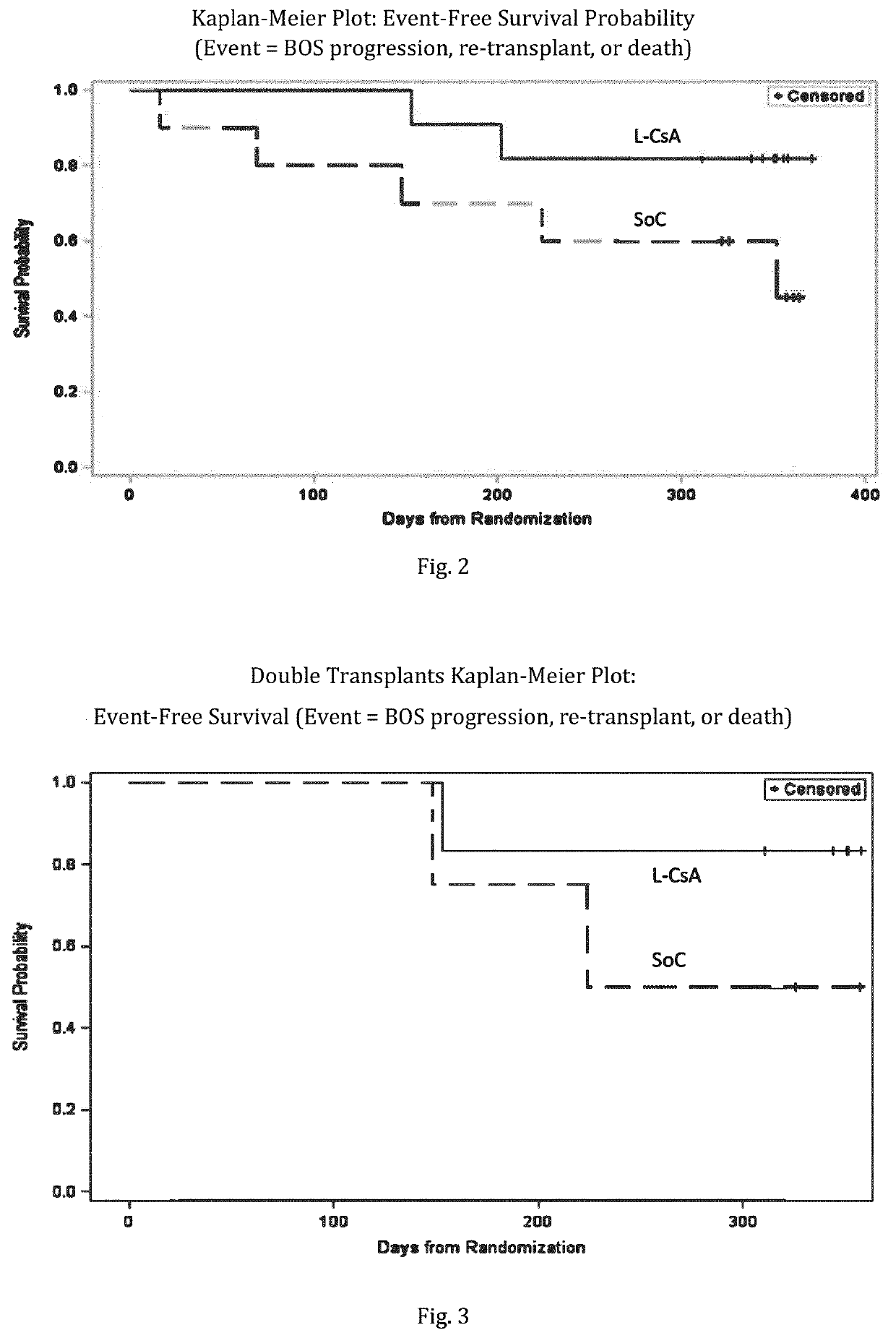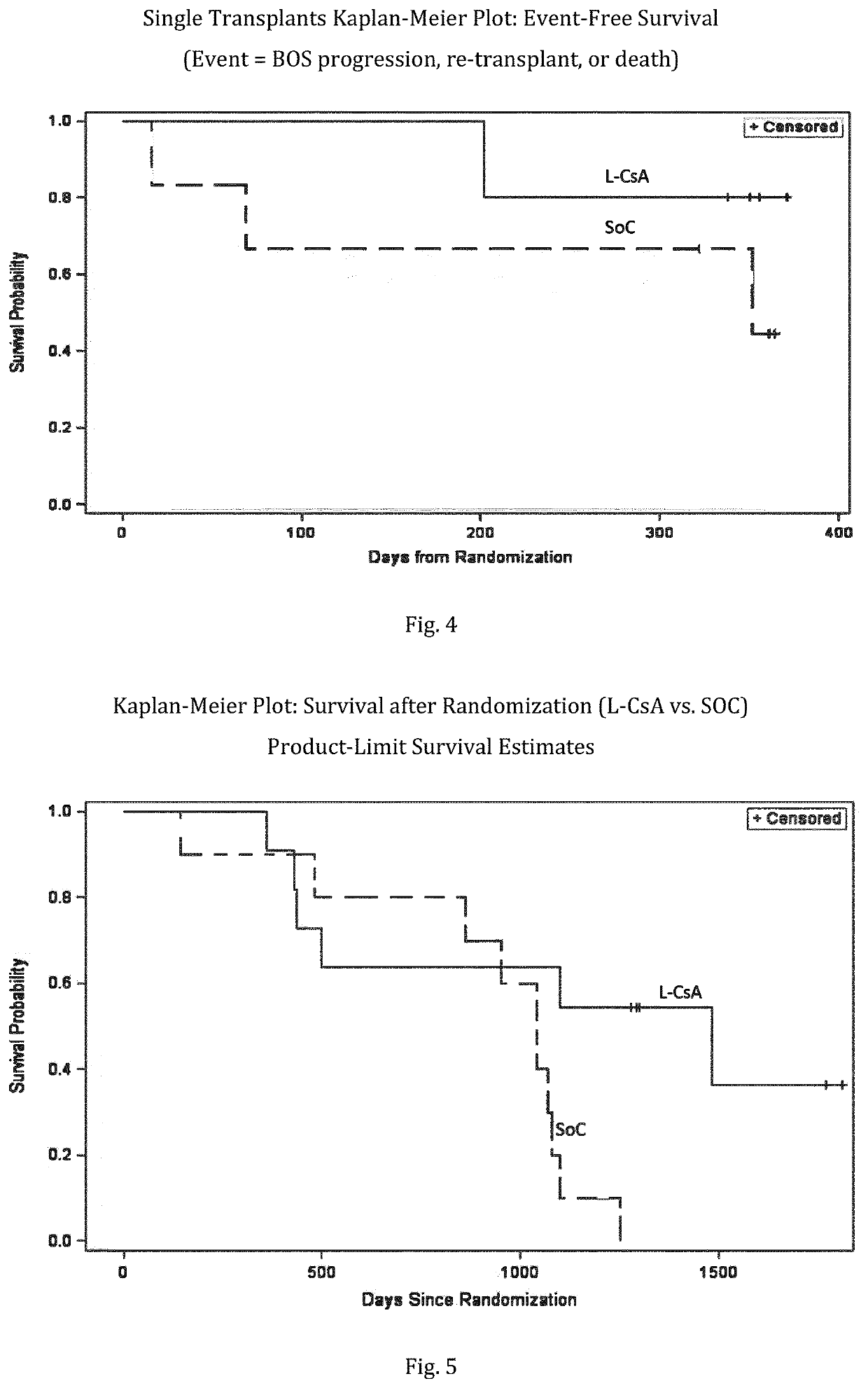Cyclosporine formulations for use in the treatment of bronchiolitis obliterans syndrome (BOS)
a technology of bronchiolitis obliterans and cyclosporine, which is applied in the field of pharmaceutical compositions, can solve the problems of major limitation of long-term survival, progressive and irreversible airway damage, morbidity and mortality of long-term survivors, etc., and achieve the effect of preventing or delaying the progression of bronchiolitis obliterans syndrome (bos)
- Summary
- Abstract
- Description
- Claims
- Application Information
AI Technical Summary
Benefits of technology
Problems solved by technology
Method used
Image
Examples
example 1
Aerosol Characterization of Liquid CsA Formulation
[0224]A liposomal cyclosporine liquid formulation for inhalation consisting of the active substance CsA (Ph. Eur.) and the excipients lipoid S100, polysorbate 80, disodium edetate, disodium hydrogen phosphate dodecahydrate and sodium dihydrogen phosphate monohydrate was prepared. The formulation was adjusted to physiologically tolerable values of pH (6.5±0.2) and osmolality (350-450 mOsmol / kg).
[0225]An aerosol was generated using an eFlow® nebulizer using a mixing chamber with a volume of about 95 ml. The aerosol generated with this nebulizer was characterized using breath simulation, laser diffraction and impactor measurements. The results of these measurements are summarized in Table 1.
[0226]
TABLE 1Aerosol characteristics of a liposomal cyclosporine (L-CsA) formulationnebulized with an eFlow ® nebulizerNominal drug amount [mg]15.0 ± 0.4MMD [μm] 2.8 ± 0.1DD [%]75.9 ± 2.6RD [% 67.7 ± 2.8RD [%, 46.7 ± 2.9Values expressed as mean ± sta...
example 2
Aerosol Characterization of Reconstituted CsA Formulation
[0229]Sucrose was added as a lyoprotectant to the formulation described in Example 1. Afterwards, the formulation was lyophilized. Immediately before nebulization, the formulation was reconstituted with 2.3 ml 0.25% saline. The liposome size was in the range of 40-100 nm (0.040-0.10 μm) with a polydispersity index of less than 0.40 after reconstitution.
[0230]The reconstituted formulation was nebulized with an eFlow® nebulizer which had the same inhalation chamber as the nebulizer in Example 1, i. e. a mixing chamber with a volume of about 95 ml. The results of the aerosol characterization data generated with the reconstituted formulation are shown in Table 2.
[0231]The results showed no substantial differences in comparison with the results obtained in Example 1.
[0232]
TABLE 2Aerosol characteristics of a reconstituted liposomal cyclosporineformulation nebulized with an eFlow ® nebulizerFill volume [ml]2.5Nominal drug amount [mg]...
example 3
Trial with Inhaled Cyclosporine in the Treatment of BOS Study Enrollment
[0233]43 patients were assessed for eligibility, of which 23 met eligibility criteria. One patient died and one patient withdrew prior to randomization. 21 patients were randomized; 11 patients to the L-CsA treatment arm and 10 patients the SOC treatment arm. (FIG. 1) One patient in L-CsA was withdrawn from the study due to progressive skin cancer during the 24-week follow-up phase. In this case, standard systemic immune suppression was discontinued.
[0234]BOS 1 or BOS 2 patients were eligible if free from untreated infection and airway stenosis by bronchoscopy with bronchoalveolar lavage (BAL) performed before randomization and at week 24 and when clinically indicated.
[0235]Bronchiolitis obliterans syndrome (BOS) grading was applied as follows: Based on bi-monthly FEV1 measurements, a BOS evaluation was performed on a continuous basis. The definition of BO is according to modified BOS criteria from the publicati...
PUM
| Property | Measurement | Unit |
|---|---|---|
| concentration | aaaaa | aaaaa |
| concentration | aaaaa | aaaaa |
| concentration | aaaaa | aaaaa |
Abstract
Description
Claims
Application Information
 Login to View More
Login to View More - R&D
- Intellectual Property
- Life Sciences
- Materials
- Tech Scout
- Unparalleled Data Quality
- Higher Quality Content
- 60% Fewer Hallucinations
Browse by: Latest US Patents, China's latest patents, Technical Efficacy Thesaurus, Application Domain, Technology Topic, Popular Technical Reports.
© 2025 PatSnap. All rights reserved.Legal|Privacy policy|Modern Slavery Act Transparency Statement|Sitemap|About US| Contact US: help@patsnap.com



